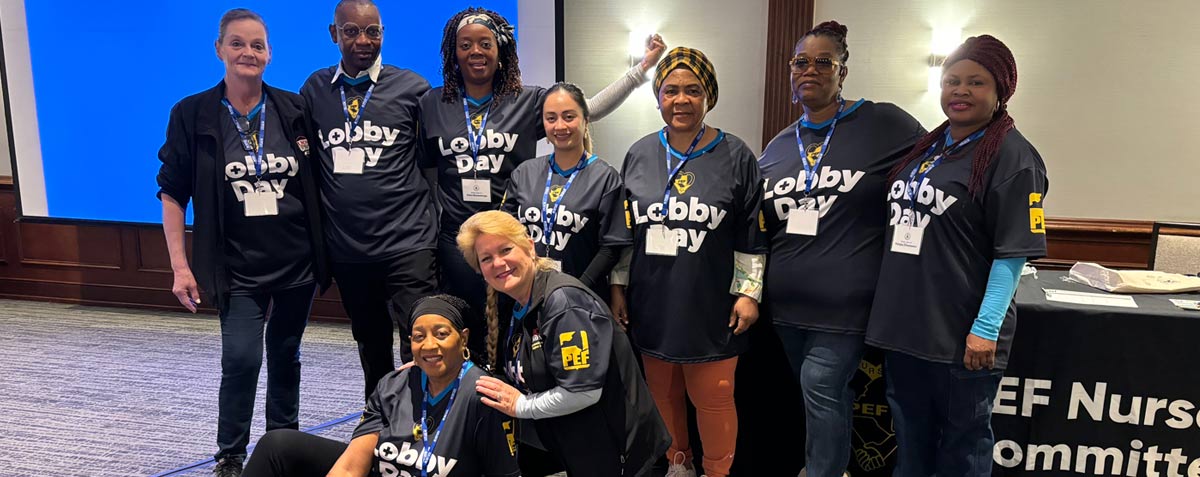
May 7, 2024 — In honor of Nurses Month, we spoke to Statewide Nurses Committee (SWNC) member Clara Shamatanga about why she chose to become a nurse and her involvement in the union.
Clara is an RN who works as a psychiatric nurse educator at Bronx Psychiatric Center (PC). She began her state service with the Office of Mental Health in 2018 as a charge nurse at Queens Children Psychiatric Center, before applying for a higher position as a Nurse III (nurse educator) at Bronx PC a year later. She has been there ever since.
“I chose nursing because I wanted to help people in a meaningful way,” Clara said. “I enjoy the direct patient care aspect of nursing, which allows me to help patients through difficult times. I also appreciate the opportunity to work with other medical professionals to ensure patients receive the best possible education and care.
“The caregiving aspect of the profession is what drew me in,” she added. “I find it rewarding to make a difference in people’s lives.”
A six-year PEF member, Clara is the Region 10 coordinator representative for the SWNC and she sees real value in union membership.
“I became active in the union for several reasons,” she said. “As a union member, I can represent the collective interests of workers. Being in a union provides a voice to protect workers in terms of job security, wages, and working conditions. Active union members can advocate for changes in the workplace, such as improved safety measures, better benefits, or fairer pay.
“Being active in a union also fosters a sense of community and solidarity,” Clara said. “I became active by regularly attending and participating in union meetings and educating my colleagues about the benefits of union membership and the issues the union is fighting for.”
To best serve her fellow PEF members, Clara said it’s important to balance union, work, and family obligations. It isn’t always easy!
“Being a union representative is rewarding, but also challenging,” she said. “Some of the challenges include negotiation, conflict resolution, representation, legal knowledge, time management, political pressure, and getting time off work to attend union meetings.
“You have to have a deep understanding of the issues at hand, strong communication skills, a good understanding of labor laws and regulations, and excellent time management skills,” Clara continued. “Balancing the responsibilities of family, work, and union representative duties can indeed be a daunting task. However, with proper planning and prioritization, it is certainly achievable.”
Clara shared some of her keys to success.
“The first step is setting clear boundaries,” she said. “Defining your responsibilities in each role and allocating specific hours for each. It’s crucial to avoid mixing roles, such as doing union work during family time. Not all tasks hold the same level of importance and it’s essential to identify the most critical tasks in each role and prioritize them.”
As a nurse, Clara understands the importance of health in order to support an active lifestyle like hers.
“Self-care is an often overlooked but vital part of maintaining balance,” she said. “Taking care of physical and mental health through regular exercise, a healthy diet, and adequate sleep can boost productivity and stress management.”
She also highlighted using a planner or digital calendar to keep things in order, and knowing how to delegate when needed.
“At work, tasks can be delegated to team members, and as a union representative, if I cannot make it to a meeting, I let the team know, and I follow up with the meeting discussion and minutes taken.”
The support of family and friends, union and non-union, is the final piece of the success puzzle.
“Seeking support from family, colleagues, and union members can be immensely helpful,” Clara said. “They can provide emotional support, share tasks, or offer advice. It’s important to remember that balance doesn’t mean equal time for all roles. It’s about fulfilling responsibilities in each role without feeling overwhelmed.”

